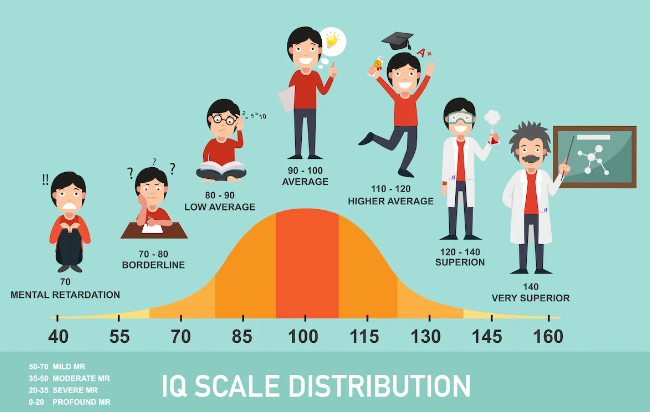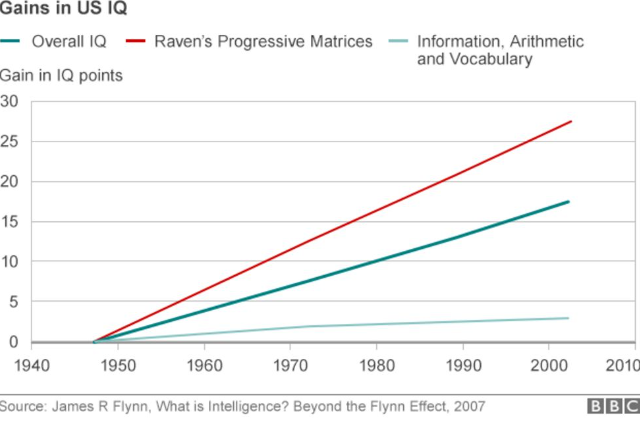Lowest IQ Ever: Examining Intelligence Quotient Measurements
Intelligence quotient (IQ) is a widely recognized measure used to assess cognitive abilities and intellectual potential. While IQ tests provide valuable insights into human intelligence, the notion of the "lowest IQ ever" sparks curiosity. In this article, we will delve into the concept of IQ, explore its limitations, and shed light on the lowest recorded IQ scores. Join us as we examine the complexities surrounding IQ measurements.

IQ Scale distribution
I. Understanding Intelligence Quotient (IQ)
1. Defining IQ: IQ is a numerical score derived from standardized tests designed to assess cognitive abilities, problem-solving skills, and mental agility. It is often used to measure an individual's intellectual potential and compare it to the general population.
2. Components of IQ Tests: IQ tests typically assess various cognitive domains, including verbal comprehension, perceptual reasoning, working memory, and processing speed. These components contribute to the overall IQ score.
II. Limitations of IQ Measurements
1. Narrow Assessment: IQ tests provide a snapshot of intellectual capabilities but may not capture the full range of human intelligence. They focus primarily on certain cognitive aspects, potentially overlooking other valuable skills and talents.
2. Cultural and Environmental Factors: IQ tests may be influenced by cultural and environmental factors, leading to potential biases. Factors such as educational opportunities, socio-economic status, and language proficiency can impact test performance.
III. Lowest Recorded IQ Scores
1. Understanding IQ Score: Ranges IQ scores are standardized, with 100 being the average score. Scores below 70 are generally considered to be in the range of intellectual disability or significantly below average.
2. Cases of Extremely Low IQ Scores: While specific cases of exceptionally low IQ scores exist, it is essential to approach them with sensitivity and respect for individuals' privacy. Publicly sharing or stigmatizing individuals based on their IQ scores can perpetuate negative stereotypes and harm.
IV. Recognizing Multiple Intelligences
1. Howard Gardner's Theory of Multiple Intelligences: The theory of multiple intelligences suggests that intelligence encompasses various dimensions beyond traditional IQ measurements. Gardner proposed different types of intelligence, including linguistic, logical-mathematical, musical, bodily-kinesthetic, interpersonal, and intrapersonal intelligences.
2. Embracing Diverse Forms of Intelligence: Acknowledging and valuing different forms of intelligence encourages a more inclusive and comprehensive understanding of human capabilities. Each individual possesses a unique combination of strengths and talents.
V. Nurturing Intellectual Potential
1. Education and Opportunities: Providing access to quality education and opportunities is crucial for nurturing intellectual potential. Supportive environments, stimulating learning experiences, and personalized approaches can help individuals reach their full potential.
2. Emotional Intelligence and Social Skills: Beyond cognitive abilities, emotional intelligence and social skills play significant roles in personal and professional success. These skills should be cultivated alongside cognitive development.

Humans getting clerver
While the concept of the "lowest IQ ever" may pique curiosity, it is important to approach discussions surrounding IQ with caution and respect for individuals' privacy. IQ measurements provide a limited snapshot of cognitive abilities and should not be used to judge an individual's worth or potential. Embracing the theory of multiple intelligences encourages a more comprehensive understanding of human capabilities. By nurturing intellectual potential, providing equal opportunities, and recognizing diverse forms of intelligence, we can foster a society that values and celebrates the richness of human potential beyond standardized IQ measurements.